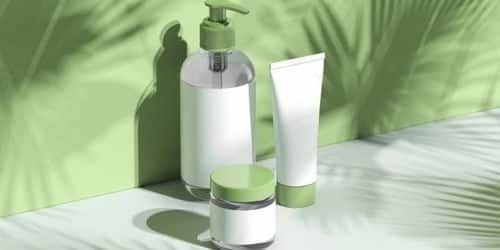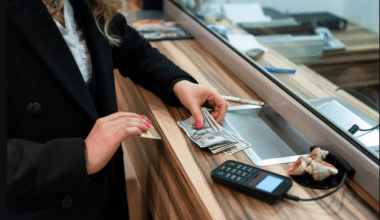Do you want to market your own line of products? Do you want customers to remember your business? If you responded yes to any of these questions, you are a fantastic candidate for white labeling. That is, selling products made by others that have been personalized with your own branding or design.
Offering white-label products eliminate the need to produce your own products. Furthermore, it’s an excellent alternative for individuals trying to capitalize on a current trend—white-label providers frequently propose products that are currently in demand, which you can brand to make your own.
In this piece, we’ll present 10 ideas for white-label products that you can start selling right away. In addition, we’ll cover how to make the most of white labeling, especially when selling in a competitive business.
What is White Labeling?
Customizing generic, mass-produced products for several brands is known as white labeling. The personalization is minor, with only the brand name or emblem applied in most cases. White-label products can be ordered in bulk, dropshipped, or printed on demand.
The terms “white labeling” and “private labeling” are frequently used interchangeably. Yet they are not the same thing. Both entail manufacturing products and then rebranding or labeling them for a different brand or retailer. Private labeling, on the other hand, most commonly refers to the process of manufacturing and branding products before they are marketed only by one company or brand.
For example, a category of power equipment offered under Walmart’s generic brand is only available at its stores. Private labeling is typically more expensive for enterprises due to the nature of personalization and high setup fees. Low minimums make white-label products more accessible.
What are White-label Products?
Products with a white label are stuff that you can use, like tools or clothing. Consider white labeling businesses such as dog treat producers. They sell their white-label products to pet stores at wholesale costs. The goodies are then repackaged and resold to customers with their name and branding on the label by the boutique. Doesn’t that make sense?
Yet, things become a little murky when it comes to white-labeling digital products. A digital product or tool cannot be held in the same way that a bag of dog treats can. And holding your laptop or smartphone does not count! Naturally, this might result in confusion between digital products and value-added services.
Why Use White Label Solutions?
There are various reasons why choosing white-label products as a business may be the best option for you.
#1. Cost-effective.
White-label products are a great way to get your business off the ground. When you white label a product, you avoid the upfront expenditures of creating, manufacturing, and marketing the product, which can be a substantial benefit, particularly for small firms.
According to Catherine Schwartz, Finance Editor at Crediful, “The major economic advantage of white labeling is that no money is spent on product development or marketing. Instead, you’re essentially riding the coattails of another company’s success, which means you can get your business up and running faster and with less overhead.”
#2. Faster to market.
Another advantage of white-label products is that they might be significantly faster to market than building your product from scratch. This is because, once again, you are not beginning from scratch; the production process is already in place, and you are simply renaming an existing product. White labeling can therefore be an excellent alternative if you need to get a product to market quickly.
Rush Order Tees’ CEO and co-founder Michael Nemeroff say, “The time to market is the main benefit of white labeling. Starting from the beginning, it can take months, if not years, to design a product, find a manufacturer, and bring it to market. White labeling can speed up the process and get a product on the market considerably more quickly.”
#3. Less dangerous.
Starting your own business always comes with some risk, but if you white-label products, you can mitigate some of that risk. Because you are not investing as much money in developing a new product, the risk is reduced.
Consequently, if the product fails in the market, you haven’t lost as much money as you would have if you’d created it from start. To further reduce your risk, get a white-label product from a trusted firm.
#4. Increased adaptability.
White-label products are also more flexible than developing your own product. For example, if you white label a product, you can still determine the packaging, branding, and marketing.
The term “ecosystem” refers to a group of people who work in the construction industry. Furthermore, while you have less control over the production process, you still have a great deal of control over how the product is presented to your clients.
#5. Reduce the minimum order quantity.
Another advantage of white-label products is that the minimum order numbers are frequently lower than if you manufactured the product yourself. This is because the white-label manufacturer already has the product in production and does not need to set up a new production line for your little order.
Thus, if you’re just getting started and don’t need many products, white-label products can be a terrific solution. Let’s imagine you want to start marketing your own cosmetics brand. You might white label lipstick from an existing company. You would therefore have your own branded lipstick without bothering about the minimum order quantity or setting up a production line.
#6. Improved quality control.
Finally, when you white label products, you can be confident that the quality will be higher than if you manufactured the product yourself. This is due to the fact that the white-label manufacturer will almost certainly have a superior quality control method than you would if you were beginning from scratch.
Furthermore, because the company is likely doing white labels for several companies, the white label manufacturer will normally have a staff of quality control experts who can ensure that the product fulfills your criteria.
Read Also: SPLASH PAGE: Examples and How To Create One
Custom Products vs. White Label
Making your own one-of-a-kind products from scratch can be quite fulfilling. The term “ecosystem” refers to a group of people who work in the construction industry. You must be innovative, as well as have patience and time for product development. Individuals who lack these characteristics may choose to avoid production entirely.
The disadvantage of a white-label strategy is that the same product may be sold under multiple brand names. Most Amazon searches, for example, produce pages and pages of similar products with different branding. You may distinguish yourself from the competition by developing a distinctive brand story and consumer experience.
Examples of White Label Products Ideas
Is white labeling right for you now that you’re up to speed? Continue reading for ideas you can start selling right away.
#1. Stainless Steel Water Bottles
Water bottles can be used as blank canvases for any design. If you’re an artist or designer wishing to sell merch, this is a low-cost idea that allows you to offer a reproduction of your work to your admirers at a reasonable price. Water bottles can also be white labeled with a basic logo and used to raise brand recognition. Assume you sell digital fitness content such as virtual personal training or online yoga lessons. Branded water bottles are a great approach to expanding into a relevant physical product.
#2. Cosmetics
Many of the cosmetics products on the market today are created by only a few companies, which you may not be aware of. In certain circumstances, the formulation is the same. What distinguishes them is their brand, packaging design, and possibly the variety of colors available. Kylie Jenner’s brand, for example, is made by Seed Beauty, a private label firm that also produces ColourPop. Focus on one product, such as lip balm, to get started with white-label cosmetics.
#3. Mobile phone accessories
White-label phone accessories, like stainless steel water bottles, are readily available, cheap to make, and easily customizable. Phone covers are an excellent way for designers or artists to showcase their work on a low-cost accessory, and other accessories such as cords or car mounts may be readily rebranded.
#4. Workout apparel and accessories
For other things, the epidemic altered how we exercised. Through 2020, sales of at-home workout equipment and fitness clothing are expected to skyrocket. And, while it may take some time for us to feel at ease at a busy gym, there is still room for growth in the fitness business. Yoga mats, athletic socks, leggings, workout equipment, t-shirts, and water bottles are available from different manufacturers and print-on-demand firms. You may launch an internet boutique or a clothes company. Customized workout apparel can help fitness influencers monetize their personal brands.
#5. Pet accessories
A surge in pet adoptions was another (quite charming) side consequence of the pandemic. The term “ecosystem” refers to a group of people who operate in the construction industry. As a result, 2020 was a banner year for pet brands, and the trend is expected to continue into 2021. By white-labeling beds, toys, and accessories, you may enter the thriving pet sector. This is a terrific choice for pet service businesses that want to add branded products to their inventory.
#6. Mugs
Ceramic mugs with memes, travel mugs engraved with your brand, or enamel camping mugs with custom artwork. For white-labeling mugs, there are numerous alternatives. And now is a fantastic time to enter the drinkware market, as more individuals are brewing coffee and tea at home as remote work becomes more popular and physical cafés close.
#7. Aromatherapy oils
As spas and salons closed their doors in 2020, demand for self-care products surged. Essential oils, diffusers, and bath products created with essential oils can all be white-labeled and sold online. Branded essential oils are an excellent option for wellness influencers to monetize their personal brands or enter the e-commerce market.
#8. LED lights
Read through the thread of any viral tweet these days and you’ll almost certainly come across a link to buy LED light products. White-label producers offer fairy lights, LED light-up sneakers, solar-powered camp lights, flashlights, and novelty lights. There are many companies on the market selling subtle variations of the same product, so spend on differentiating your brand, website, and marketing.
#9. Bags
The pandemic accelerated many growing consumer trends, including the interest in supporting sustainable practices and businesses. Retail enterprises can add branded reusable totes to their inventory and sell (or give them free) them at a reasonable cost to encourage customers to shun plastic while also increasing brand awareness. These are excellent choices for graphic designers and painters as well. The wide flat surface is a terrific blank canvas that offers an easy way to sell your work. White-label tote bags are frequently offered by print-on-demand providers, allowing you to get started with a small initial cost.
#10. Massage tools
Massage guns were another breakout product idea in 2020 after many replaced their wellness rituals with at-home devices. The massage guns that may be personalized with your logo can be found on sites like Alibaba.
#11. Coffee
Consider selling your own branded coffee beans instead of mugs. Some coffee makers will collaborate with other brands to create special blends and packaging. In general, these partnerships would necessitate a significant investment, but there are low-cost options that can offer consistent passive income.
Is White Labeling Profitable?
White labeling can be successfully provided you have a good price plan, the capacity to drive traffic, and solid financial management. Dropshipping or print-on-demand company models are low-risk ways to get started because neither requires upfront inventory purchases.
Read Also: PRIVATE LABEL MANUFACTURERS: How To Find Them
Where Can I Get White Label Products?
On websites like Alibaba and DHgate, you can locate a provider of white-label products. Check out other manufacturers and businesses that sell white-label products. Some, such as dropshipping and print-on-demand businesses, integrate directly with Shopify.
Read Also: WHITE LABEL PRODUCT: What Is It And How To Do It.
Where Should I Market My White-label Products?
You can sell white-label items to customers via your e-commerce website, a physical store, and marketplaces and social shopping channels that link with Shopify. It is also feasible to sell your products to other stores, but you must first establish a wholesale channel. Decide how to position your business after conducting research on your target audience.
How Do I Get Start With White Labeling?
You can get started with a few simple steps:
- Choose a product.
- Decide whether you will dropship, print on demand, or buy inventory.
- Create a brand and brand assets for your business.
- Create a Shopify store and sales channels.
- Start selling!
Conclusion
Every technical breakthrough, every new automation tool, and every new channel where you may discover clients lowers the obstacles to beginning a business. But first, you need a concept. Some wait around for that one big idea—the one that will change the world or change their luck. The concept could be years distant.
White labeling allows you to get started right away, through a side hustle or a hands-off print-on-demand or dropshipping business, and is a terrific way to gain skills on your journey to the next big thing.
- PRIVATE LABELING MANUFACTURERS: The Top 15 picks to kickstart your brand
- PRIVATE LABELLING: How It Works, Comparisons, Examples & Best 2023 Practices
- HOW TO CREATE A SHIPPING LABEL: Detailed Guide
- THE B2B2C BUSINESS MODEL IS EXPLAINED!
- WHAT ARE DIGITAL PRODUCTS: How To Create and Sell Them






